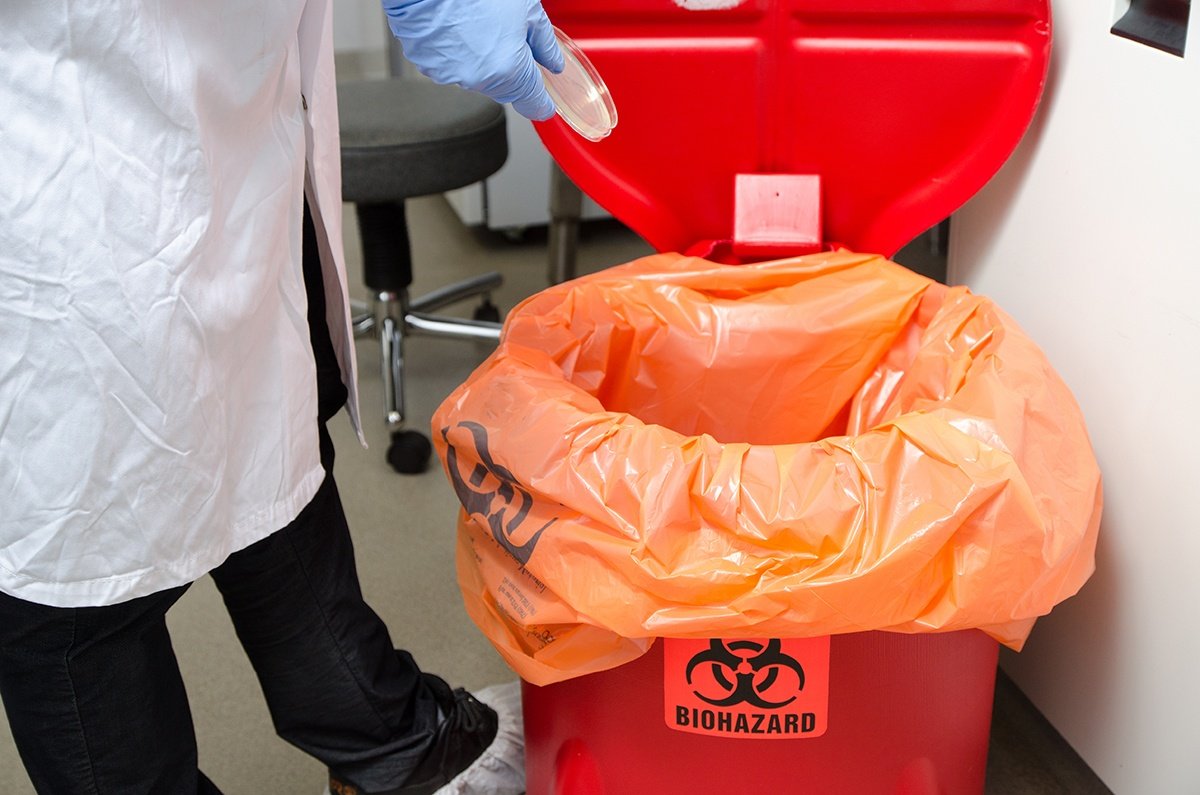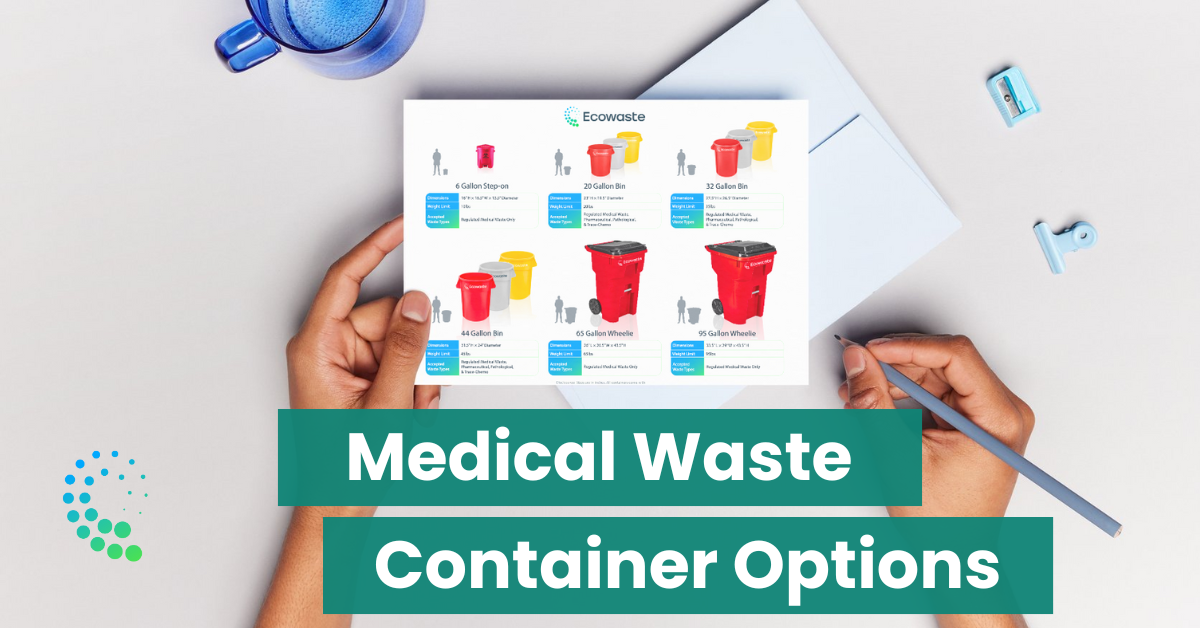
Medical Waste Regulations in California
March 25, 2024
Medical Waste Container Size and Options
April 28, 2024Managing medical waste is a critical responsibility for healthcare facilities in California. Proper management of medical waste not only ensures the safety of healthcare workers and the general public but also helps protect the environment.
In this comprehensive guide, we will explore the best practices for managing medical waste in California, from understanding the regulations to choosing a reliable medical waste management company.
Understanding the regulations for medical waste management in California
California has stringent regulations in place to govern the management of medical waste. The California Medical Waste Management Act (MWMA) sets forth guidelines for the proper handling, storage, transportation, and disposal of medical waste.
It is essential for healthcare facilities to familiarize themselves with these regulations to ensure compliance and minimize the risk of fines or legal repercussions.
One of the key requirements of the MWMA is the proper classification and segregation of medical waste. Medical waste is classified into several categories, including sharps waste, infectious waste, pathological waste, and pharmaceutical waste.
Each category has specific handling and disposal requirements, and it is crucial to adhere to these guidelines to prevent cross-contamination and ensure the safety of workers and the environment.
Classifying and segregating medical waste
Proper classification and segregation of medical waste are fundamental steps in effective waste management. Healthcare facilities should establish clear protocols for identifying and separating different types of medical waste.
This includes providing designated containers for sharps, infectious waste, and other categories as per the MWMA guidelines.
Sharps waste, which includes needles, syringes, and lancets, should be collected in puncture-resistant containers that are labeled appropriately. Infectious waste, such as blood-soaked bandages and cultures, should be segregated and stored in leak-proof bags or containers.
Pathological waste, which includes tissues and organs, should also be properly labeled and stored separately. By implementing these segregation practices, healthcare facilities can minimize the risk of exposure and contamination.
Proper storage and labeling of medical waste
Proper storage and labeling of medical waste are crucial for maintaining a safe and organized healthcare environment. The MWMA outlines specific requirements for the storage of medical waste, including the use of leak-proof containers, secure lids, and appropriate signage.
It is essential to label each container with the appropriate waste category and any additional information required by the regulations.
In addition to proper storage and labeling, healthcare facilities must also establish a regular schedule for waste removal.
Accumulating medical waste for extended periods can increase the risk of contamination and pose a threat to the health and safety of workers and patients.
Regularly monitoring waste levels and arranging timely pickups by a licensed waste management company is essential to maintain a clean and safe facility.
Transportation and disposal of medical waste
Transporting and disposing of medical waste must be done in accordance with the regulations set forth by the MWMA. Healthcare facilities should partner with licensed waste management companies that specialize in the transportation and disposal of medical waste.
These companies have the necessary expertise and equipment to handle medical waste safely and responsibly.
During transportation, medical waste must be packaged and secured to prevent leaks or spills. It should be transported in vehicles specifically designed for medical waste transportation and operated by trained personnel.
The waste management company should provide a tracking system to ensure proper documentation and disposal of the waste.
Best practices for handling sharps and infectious waste
Proper handling of sharps and infectious waste is crucial to prevent injuries and the spread of infections. Healthcare workers should receive comprehensive training on handling these types of waste and be equipped with personal protective equipment (PPE) such as gloves, gowns, and masks.
When handling sharps waste, it is essential to use safety devices such as needleless systems and safety syringes whenever possible. Sharps containers should be easily accessible and located close to the point of use to encourage proper disposal.
Healthcare facilities should also establish clear protocols for the safe collection, containment, and disposal of infectious waste to minimize the risk of exposure.
Employee training and safety protocols for medical waste management
Ensuring the safety of healthcare workers and other staff involved in medical waste management requires comprehensive training and the establishment of robust safety protocols.
Healthcare facilities should provide regular training sessions to educate employees on the proper handling, storage, and disposal of medical waste.
Training should cover topics such as waste classification, segregation, labeling, and emergency response procedures. Employees should also be trained on the proper use of personal protective equipment (PPE) and the importance of following safety protocols. Regular safety drills and audits can help identify any gaps in knowledge or practices and allow for corrective actions to be taken.
Choosing a reliable medical waste management company in California
Partnering with a reliable medical waste management company is crucial for healthcare facilities in California. When selecting a waste management company, consider factors such as their compliance with regulations, experience in the industry, and reputation for reliable service.
A reputable waste management company should be fully licensed and insured, have a strong track record of compliance with regulations, and offer comprehensive waste management solutions.
They should also have a robust system in place for the transportation and disposal of medical waste, including proper documentation and tracking.
→ Los Angeles County's Trusted Medical Waste Company
Monitoring and auditing medical waste management practices
Maintaining effective medical waste management practices requires ongoing monitoring and auditing. Healthcare facilities should establish protocols for regular inspections and audits to ensure compliance with regulations and identify any areas for improvement.
Regular monitoring can help identify potential issues such as overfilled containers, improper labeling, or inadequate storage. It also provides an opportunity to reinforce training and address any non-compliance issues promptly.
By conducting regular audits, healthcare facilities can continuously improve their waste management practices and minimize the risk of violations.
Conclusion
Managing medical waste in California requires a comprehensive understanding of the regulations, proper classification and segregation, and adherence to best practices for storage, transportation, and disposal.
By implementing these best practices and partnering with a reliable waste management company, healthcare facilities can ensure the safety of their workers, protect the environment, and maintain compliance with California's stringent regulations.
By staying proactive and monitoring waste management practices, healthcare facilities can contribute to the future of sustainable and responsible medical waste management.
A Better Service Awaits You
Schedule a complimentary evaluation of your waste disposal needs by speaking with one of our account specialists today.

